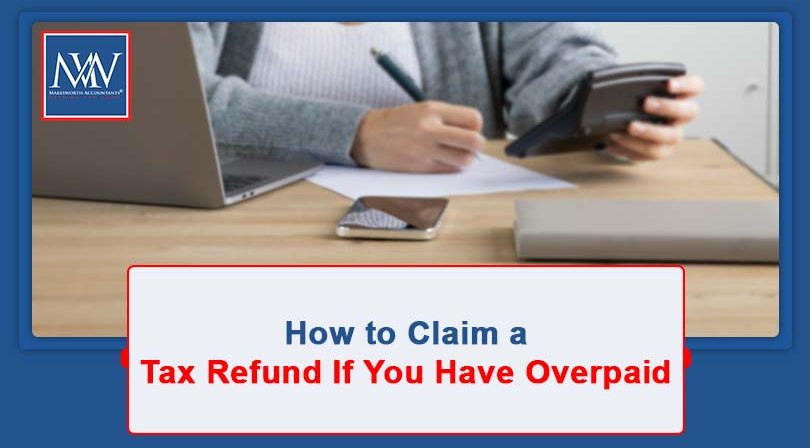
How to Claim a Tax Refund If You Have Overpaid
Overpaying taxes is more common than many people realize, and when it happens, taxpayers naturally want to reclaim their money as soon as possible. The process for claiming a refund depends on how the overpayment occurred. Below, we outline the different scenarios in which you may be eligible for a tax refund and how to claim it efficiently.
Tax Refunds for Employees
You may have paid too much tax on your employment income if you are an employee. This can happen if:
- Your tax code was incorrect.
- You incurred work-related expenses that qualify for tax relief.
To claim a refund for employment expenses, you can use the online service available on the Gov.uk website or submit a P87 form by post. Be sure to include the necessary supporting documents to avoid delays.
If HMRC has determined that you have overpaid tax, you may receive a P800 tax calculation letter. This letter will outline how to claim your refund. If instructed to claim online, visit www.gov.uk/tax-overpayments-and-underpayments/if-youre-due-a-refund, where you must provide your P800 reference number and National Insurance number. Once submitted, your refund should be credited to your bank account within five days.
Other ways to claim include:
- Through your tax account on the HMRC website.
- Via the HMRC mobile app.
- By writing directly to HMRC.
If the P800 letter states that you will receive a cheque, there is no need to take further action—HMRC will send it by post, usually within 14 days.
For the 2023/24 tax year, P800 letters are expected to be sent out by the end of March 2025.
Refunds for Self-Assessment Taxpayers
If you file a Self-Assessment tax return, you may be entitled to a refund in cases where:
- Your income has dropped, leading to an overpayment on the account.
- You have claimed loss relief, reducing your overall tax liability.
You can request a refund while submitting your Self-Assessment tax return, and HMRC will typically process the repayment within two weeks.
If you didn’t request a refund in your tax return, you can still claim it through:
- Your online Self-Assessment account by selecting ‘Request a Repayment’.
- Your personal tax account by choosing ‘Claim a Refund’ and following the instructions.
- Your business tax account (if applicable).
Refunds can be paid directly into a UK bank account or, if preferred, issued as a cheque. Once a claim is submitted, HMRC generally processes refunds within two weeks.
For more details, visit www.gov.uk/claim-tax-refund.
For more information, Book a Free Consultation
Need Accountancy Support?
For information on bespoke training, or if you have any other questions for Makesworth Accountant, please fill in your details below
















 151
151